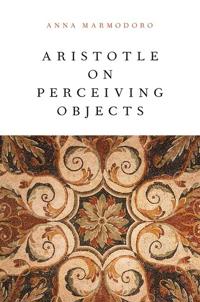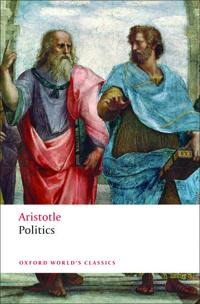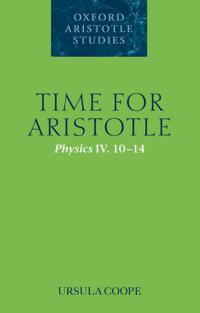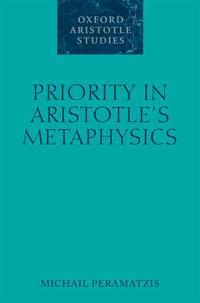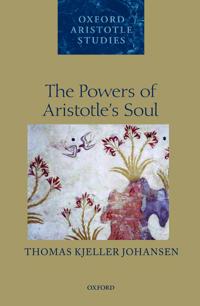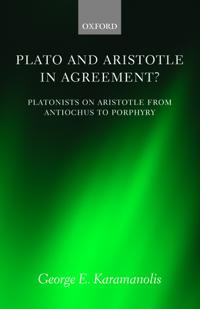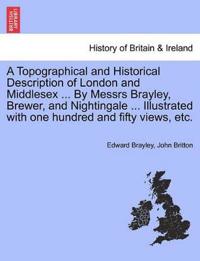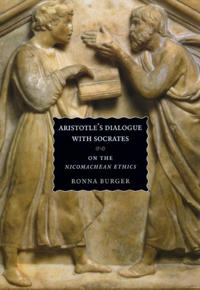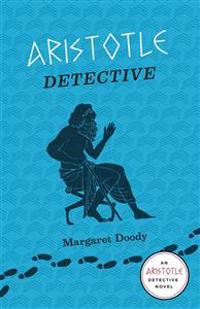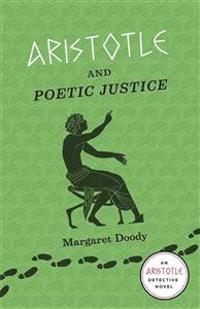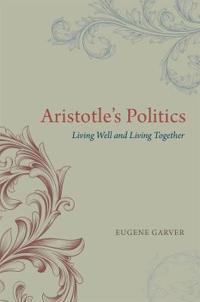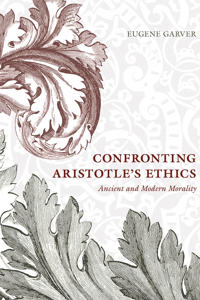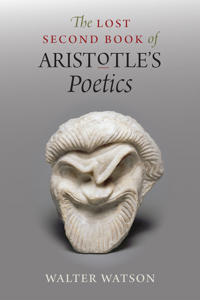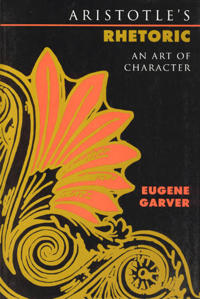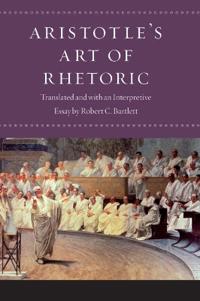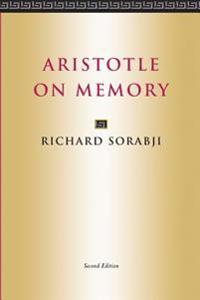Aristotle on Teleology (Inbunden)
avMonte Ransome Johnson
ISBN: 9780199285303 - UTGIVEN: 2005-11-03Teleology, First Principles, and Scientific Method in Aristotle's Biology (Inbunden)
avAllan Gotthelf
ISBN: 9780199287956 - UTGIVEN: 2012-02-23This volume draws together Allan Gotthelf's pioneering work on Aristotle's biology. He examines Aristotle's natural teleology, the axiomatic structure of biological explanation, and the place of classification in the three great works with which Aristotle laid the foundations of biological science.[...]
Brute Within, The: Appetitive Desire in Plato and Aristotle (Inbunden)
avHendrik Lorenz
ISBN: 9780199290635 - UTGIVEN: 2006-04-06Aristotle on Perceiving Objects (Inbunden)
avAnna Marmodoro
ISBN: 9780199326006 - UTGIVEN: 2014-08How can we explain the structure of perceptual experience? What is it that we perceive? How is it that we perceive objects and not disjoint arrays of properties? By which sense or senses do we perceive objects? Are our five senses sufficient for the perception of objects? Aristotle investigated thes[...]
The Politics (Häftad)
avAristotle
ISBN: 9780199538737 - UTGIVEN: 200902The Politics is one of the most influential texts in the history of political thought, and it raises issues which still confront anyone who wants to think seriously about the ways in which human societies are organized and governed. The work of one of the world's greatest philosophers, it draws on A[...]
Physics (Häftad)
avAristotle
ISBN: 9780199540280 - UTGIVEN: 2008-05For many centuries, Aristotle's Physics was the essential starting point for anyone who wished to study the natural sciences This book begins with an analysis of change, which introduces us to Aristotle's central concepts of matter and form, before moving on to an account of explanation in the scie[...]
Moral Psychology and Human Action in Aristotle
ISBN: 9780199546541 - UTGIVEN: 2011-04Both Aristotle and moral psychology have been flourishing areas of philosophical inquiry in recent years. This volume aims to bring the two streams of research together, offering a fresh infusion of Aristotelian insights into moral psychology and philosophy of action, and the application of develope[...]
Time for Aristotle
ISBN: 9780199556700 - UTGIVEN: 2009-01What is the relation between time and change? Does time depend on the mind? Is the present always the same or is it always different? Aristotle tackles these questions in the Physics, and Time for Aristotle is the first book in English devoted to this discussion. Aristotle claims that time is not a [...]
Priority in Aristotle's Metaphysics
ISBN: 9780199588350 - UTGIVEN: 2011-09Michail Peramatzis presents a new interpretation of Aristotle's view of the priority relations between fundamental and derivative parts of reality, following the recent revival of interest in Aristotelian discussions of what priority consists in and how it relates existents. He explores how in Aris[...]
The Powers of Aristotle's Soul (Inbunden)
avThomas Kjeller Johansen
ISBN: 9780199658435 - UTGIVEN: 2012-10Aristotle is considered by many to be the founder of 'faculty psychology'-the attempt to explain a variety of psychological phenomena by reference to a few inborn capacities. In The Powers of Aristotle's Soul, Thomas Kjeller Johansen investigates his main work on psychology, the De Anima, from this [...]
How Aristotle Gets By In Metaphysics Zeta (Inbunden)
avFrank A. Lewis
ISBN: 9780199664016 - UTGIVEN: 2013-06-27Frank A. Lewis presents a close study of book Zeta of Aristotle's Metaphysics, one of his most dense and controversial texts, commonly understood to contain his deepest thoughts on the definition of substance and related metaphysical issues. Lewis argues that Aristotle returns to the causal view of [...]
Aristotle
ISBN: 9780199682980 - UTGIVEN: 2018-04The Clarendon Aristotle Series is designed for both students and professionals. It provides accurate translations of selected Aristotelian texts, accompanied by incisive commentaries that focus on philosophical problems and issues. The volumes in the series have been widely welcomed and favourably [...]
Plato and Aristotle in Agreement? (Häftad)
avGeorge E. Karamanolis
ISBN: 9780199684632 - UTGIVEN: 201308George Karamanolis breaks new ground in the study of later ancient philosophy by examining the interplay of the two main schools of thought, Platonism and Aristotelianism, from the first century BC to the third century AD. From the time of Antiochus and for the next four centuries Platonists were st[...]
Routledge Philosophy GuideBook to Aristotle on Ethics
ISBN: 9780203181577 - UTGIVEN: 2015-06Aristotle's Nicomachean Ethics is one of the most important texts in western philosophy, and arguably the most influential text on contemporary moral theory.This GuideBook introduces and assesses:* Aristotle's life and the background to the Nicomachean Ethics* The ideas and text of the Nicomachean E[...]
Aristotle's Teaching in The Politics (Inbunden)
ISBN: 9780226016030 - UTGIVEN: 2013-04With "Aristotle's Teaching in the "Politics"", Thomas L. Pangle offers a masterly new interpretation of this classic philosophical work. It is widely believed that the Politics originated as a written record of a series of lectures given by Aristotle, and scholars have relied on that fact to explain[...]
Aristotle's Dialogue with Socrates (Pocket)
avRonna Burger
ISBN: 9780226080529 - UTGIVEN: 2009-08What is the good life for a human being? Aristotle's exploration of this question in the "Nicomachean Ethics" has established it as a founding work of Western philosophy, though its teachings have long puzzled readers and provoked spirited discussion. Adopting a radically new point of view, Ronna Bu[...]
Aristotle Detective (Häftad)
avMargaret Doody
ISBN: 9780226131702 - UTGIVEN: 2014-03Murder and mayhem may seem like unreasonable company for Aristotle, one of the founding minds of western philosophy. But in the skilled hands of Margaret Doody, the pairing could not be more logical. With her Aristotle Detective novels, Margaret Doody brings a Holmesian hero to the bloodied streets [...]
Aristotle and Poetic Justice (Häftad)
avMargaret Doody
ISBN: 9780226131986 - UTGIVEN: 2014-03Murder and mayhem may seem like unreasonable company for Aristotle, one of the founding minds of Western philosophy. But in the skilled hands of Margaret Doody, the pairing could not be more logical. With her Aristotle Detective novels, Margaret Doody brings a Holmesian hero to the bloodied streets [...]
Aristotle's Politics
ISBN: 9780226154985 - UTGIVEN: 2014-04"Man is a political animal," Aristotle asserts near the beginning of the Politics. In this unique reading of one of the foundational texts of political philosophy, Eugene Garver traces the surprising implications of Aristotle's claim and explores the treatise's relevance to ongoing political concern[...]
Confronting Aristotle's Ethics
ISBN: 9780226270197 - UTGIVEN: 2015-06What is the good life? Posing this question today would likely elicit very different answers. Some might say that the good life means doing good - improving one's community and the lives of others. Others might respond that it means doing well - cultivating one's own abilities in a meaningful way. B[...]
The Lost Second Book of Aristotle's Poetics
ISBN: 9780226274119 - UTGIVEN: 2015-03Of all the writings on theory and aesthetics - ancient, medieval, or modern - the most important is indisputably Aristotle's Poetics, the first philosophical treatise to propound a theory of literature. In the Poetics, Aristotle writes that he will speak of comedy - but there is no further mention o[...]
Aristotle's Rhetoric
ISBN: 9780226284255 - UTGIVEN: 1995-04In this contribution to philosophy and rhetoric, Eugene Garver shows how Aristotle integrates logic and virtue in his treatise, the "Rhetoric". Garver argues that Aristotle raises and answers a central question: can there be a civic art of rhetoric, an art that forms the character of citizens? By de[...]
Aristotle's "Art of Rhetoric"
ISBN: 9780226591629 - UTGIVEN: 2019-02For more than two thousand years. Aristotle's "Art of Rhetoric" has shaped thought on the theory and practice of rhetoric, the art of persuasive speech. In three sections, Aristotle discusses what rhetoric is, as well as the three kinds of rhetoric (deliberative, judicial, and epideictic), the three[...]
Aristotle on Memory: Second Edition (Häftad)
avRichard Sorabji
ISBN: 9780226768236 - UTGIVEN: 200605Aristotle's Politics
ISBN: 9780226921839 - UTGIVEN: 2013-03One of the fundamental works of Western political thought, Aristotle's masterwork is the first systematic treatise on the science of politics. For almost three decades, Carnes Lord's justly acclaimed translation has served as the standard English edition. Widely regarded as the most faithful to both[...]




